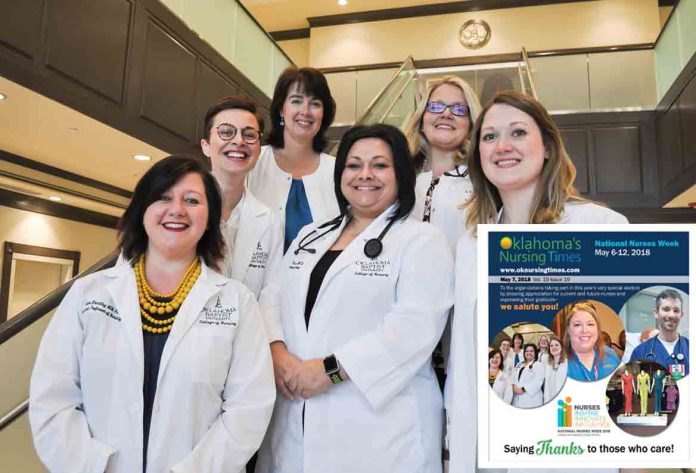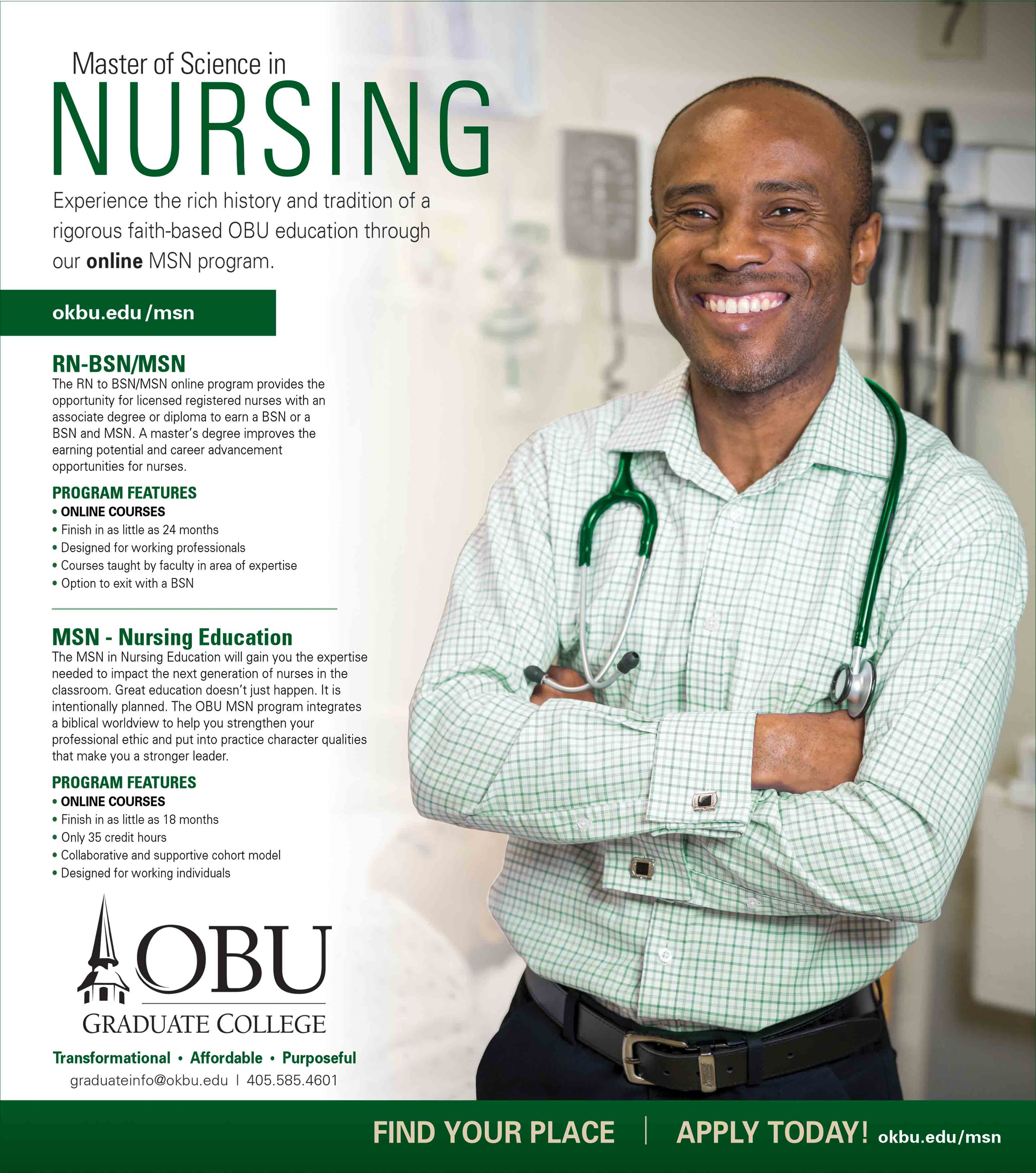
The nationwide nursing shortage has been grabbing headlines for decades.
But go into America’s nursing schools and there’s an even bigger problem.
Nursing faculty are getting older, retiring or leaving education altogether to chase bigger paychecks.
Dr. Lepaine Sharp-McHenry, Dean of the Oklahoma Baptist University College of Nursing sees all the statistics.
But she’s determined her students and faculty won’t be one of them.
Sharp-McHenry notes that OBU is one of the only nursing school in Oklahoma that doesn’t have an enrollment cap. That’s because OBU is growing its program by growing its faculty, moving towards 100-percent doctorally prepared educators.
“You have to have the best people in the classroom,” Sharp-McHenry said. “I think taking them to that next level in their educational journey is only going to make us better as a program and also the learning experience in the classroom for students will be enhanced.”
“As nurse educators we really have a responsibility to invest in, nurture and support the next generation of nursing faculty.”
Nationwide, the statistics are alarming.
According to American Association of Colleges of Nursing report on 2016-2017 Enrollment and Graduations in Baccalaureate and Graduate Programs in Nursing, U.S. nursing schools turned away 64,067 qualified applicants from baccalaureate and graduate nursing programs in 2016 due to an insufficient number of faculty, clinical sites, classroom space, clinical preceptors, and budget constraints.
Most nursing schools responding to the survey pointed to faculty shortages as a reason for not accepting all qualified applicants into baccalaureate programs.
According to a Special Survey on Vacant Faculty Positions released by AACN in October 2016, a total of 1,567 faculty vacancies were identified in a survey of 821 nursing schools with baccalaureate and/or graduate programs across the country.
Besides the vacancies, schools cited the need to create an additional 133 faculty positions to accommodate student demand. The data shows a national nurse faculty vacancy rate of 7.9%. Most of the vacancies (92.8%) were faculty positions requiring or preferring a doctoral degree.
“Oklahoma is not exempt from that,” Sharp-McHenry said. “The average age of nurses now is getting higher and higher and Baby Boomers that are nursing faculty are nearing retirement. Another factor that is challenging is it’s really hard for us to compete with salaries in practice for nursing educators.”
Doctoral programs aren’t producing a large enough pool to draw from either.
So that’s why Sharp-McHenry challenged her faculty: Become doctorally prepared and change the profession.
Sharp-McHenry smiles when she ticks off the list of faculty members one by one who have finished, are finishing or just beginning their doctoral work.
“We’re committed to it because we know the difference it will make in the learning experience of the students and also their contribution to nursing knowledge through their scholarly work,” Sharp-McHenry said. “Being able to have a faculty at that level in the classroom with the students is going to really improve that learning experience.”
“And as a faith-based institution I personally believe if we’re going to educate nurses then we should be doing it at the absolute best level possible.”
Sharp-McHenry understands the importance and responsibility nurses have in developing the next generation of nurses.
She joined the OBU faculty in 2013. Previously at the University of Arkansas, she served as assistant director of the Eleanor Mann School of Nursing. She has served as nursing faculty in graduate and undergraduate education.
Her diverse background has afforded her the opportunity to work in nursing practice, regulation, and education.
She is the founding president of the Arkansas Directors of Nursing Administration in Long Term Care Association and Past Vice President of the National Association of Directors of Nursing Administration in Long Term Care. McHenry chaired the Transition to Practice Committee for the National Council of State Boards of Nursing and served as the Vice President of this organization.
She is a member of the AACN Board of Directors for the American Association for Colleges of Nursing and former member of the AACN Finance Committee. She also serves as a site evaluator for CCNE.
Sharp-McHenry started as an ADN out of Southern Arkansas University but she wasn’t going to stop there. She earned her BSN at the University of Arkansas-Fayetteville before coming to the Sooner State for her MSN at the University of Oklahoma – Tulsa.
Her DNP followed a while later at Union University.
“I’m excited where we are on this journey,” Sharp-McHenry said. “In a few years most of our faculty will be doctorally prepared. That’s exciting for the college. It’s exciting for the student but it’s also exciting for their personal accomplishment.”













